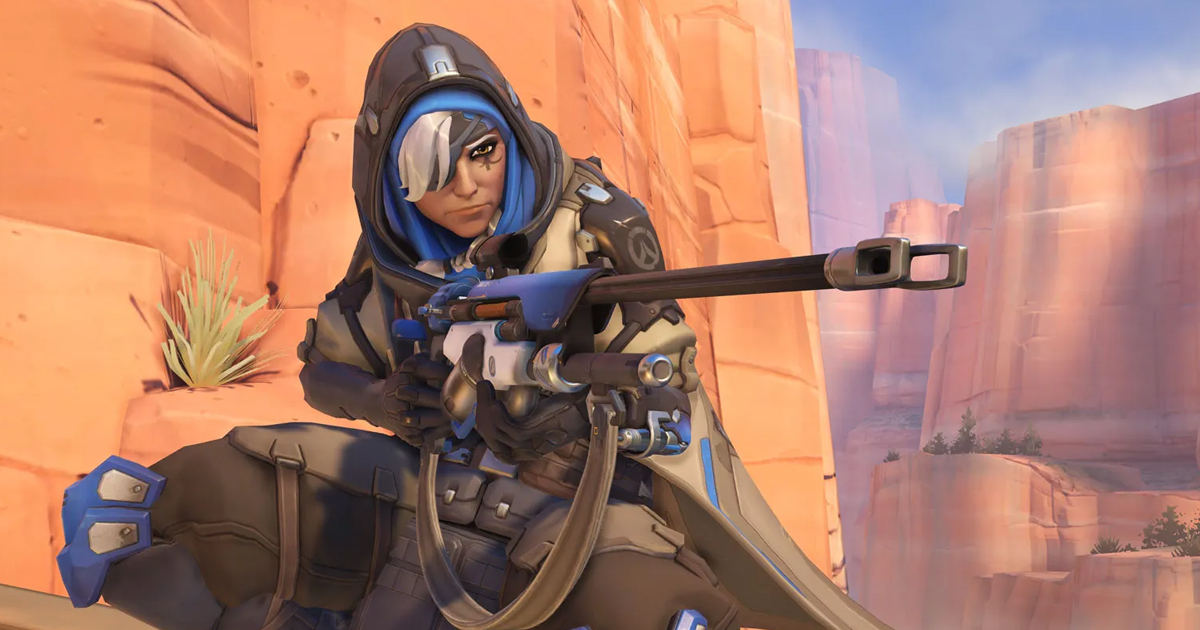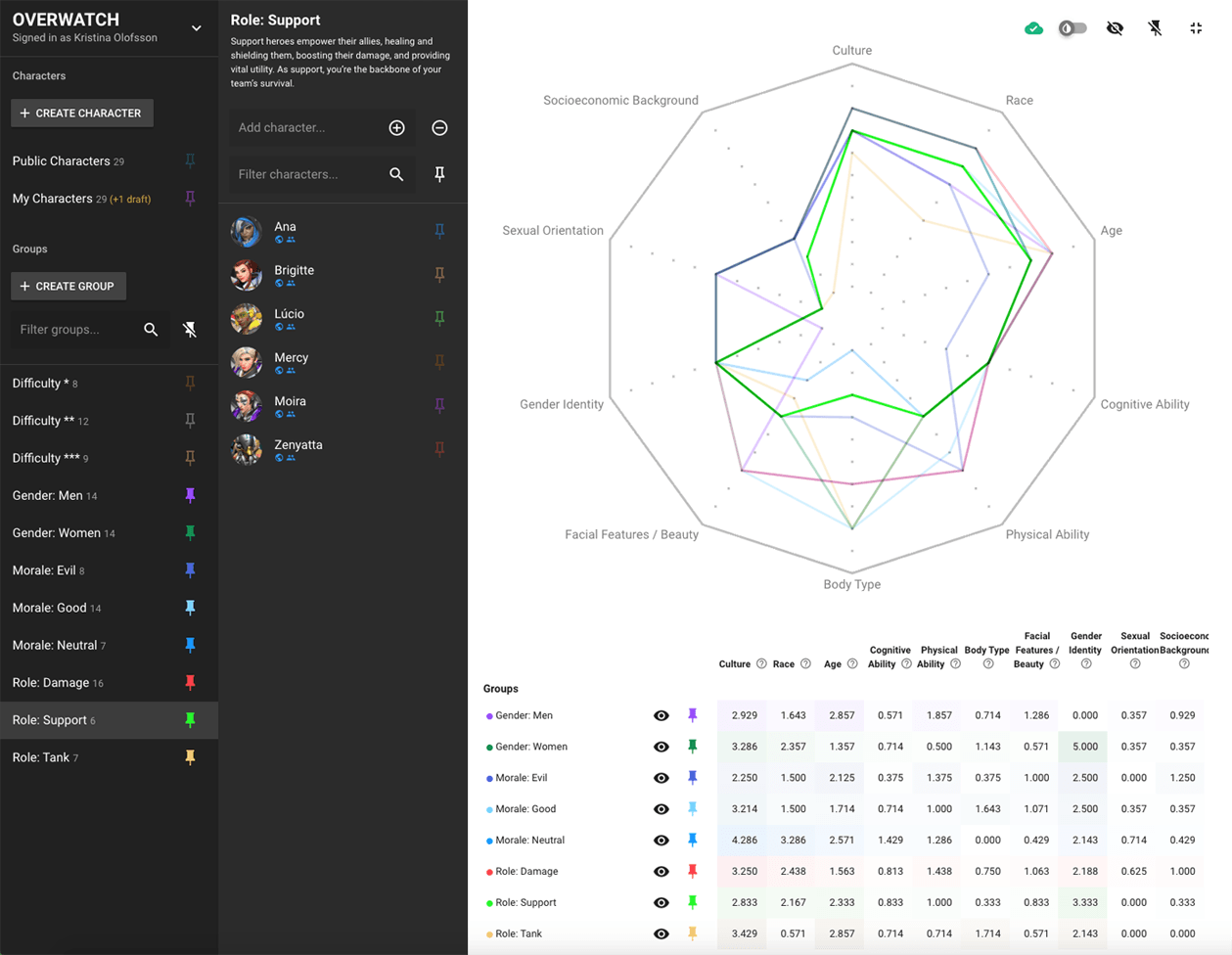Activision Blizzard’s diversity tool causes controversy online, with Overwatch devs denying using this “creepy dystopian chart”
The so-called “Diversity Space Tool,” which was recently introduced by Activision Blizzard, has drawn criticism from players and developers. Some of the Overwatch creators have also denied any connection to this technology.
What is the Diversity Space Tool?
On May 12, Activision Blizzard published a blog post dedicated to a special technology aimed at creating more diverse and inclusive characters.
Diversity Space Tool was developed by King, one of the three major companies at Activision Blizzard King. The Candy Crush creator has been working on it alongside the MIT Game Lab since 2016.
As the studio pointed out, the intention was to inspire developers to think outside the box and get rid of unconscious bias and exclusion when it comes to the creation of game characters.
“As a result, hopefully we will create more characters that break the mold, and better represent women, non-binaries and other under-represented minorities in the industry,” King globalization project manager Jacqueline Chomatas said in a statement.
Although Activision Blizzard eventually edited the blog post, the original version said that the Diversity Space Tool had been tested by Call of Duty: Vanguard developers, as well as the Overwatch 2 team, who had a chance to “experiment with the tool, with equally enthusiastic first impressions” (via PC Gamer).
So this is how the Diversity Space Tool works:
- The software measures different characteristics, including age, culture, race, body type, gender, and socioeconomic background;
- The “norm” is rated 0, with other numbers showing the deviation from this “norm”;
- The tool also takes into account things like gameplay roles of game characters (tank, damage dealer, support, etc.);
- So characters get additional scores every time they deviate from that “norm,” which is basically a white, cisgender straight man.
According to the original post, Activision Blizzard planned to release the Diversity Space Tool this summer. The ultimate goal was to make it available to other game development companies.
How did the internet react to the announcement?
A lot of people criticized the Diversity Space Tool, highlighting different issues with this technology. “How do you quantify race and sexual orientation in this. What does it even mean that a character has a higher race than another?” one user wrote on Twitter.
Avoid Tokenism by placing a direct number value on race or culture.
how did you get this far and not realize how weird this is pic.twitter.com/HIB93e66hG— Crazyer (@crazyer6) May 13, 2022
Some members of the Overwatch team, who, according to Activision Blizzard, have tested the tool, disavowed their connection to this software.
“God I swear our own company tries so hard to slaughter any good will the actual devs who make the game have built,” character artist Melissa Kelly wrote, adding that the team “doesn’t even use this creepy [dystopian] chart” because their writers, producers, artists, and other devs have eyes.
God I swear our own company tries so hard to slaughter any good will the actual devs who make the game have built
Overwatch doesn’t even use this creepy distopian chart, our writers have eyes. The artists: have eyes. Producers, directors, etc, as far as I know also all have eyes https://t.co/WEMRf8QmBu
— melissa kelly 💙 (@_mlktea) May 14, 2022
Overwatch 2 senior game designer Dylan Snyder noted that the team didn’t even know the tool existed until the company’s announcement.
FWIW, the portion about Overwatch 2 was removed mostly because we’re not using it and didn’t know it existed until yesterday.
— Dylan Snyder 💙 (@chronofloss) May 14, 2022
How did Activision Blizzard respond to criticism?
The company eventually removed all charts from the original post, as well as any mentions of its first-party teams having been testing the Diversity Space Tool, which it then referred to as “prototype” currently in beta.
“Our intent with this blog entry was to share an in-progress piece of our journey in this endeavor,” the editor’s note reads. “We recognize and respect that all people may be on their own, unique point in their journey with [diversity, equity, and inclusion]. The Diversity Space Tool is not a definitive evaluation of diversity in game content; rather, it is a bridge in opening previously unspoken conversations into how thoughtful inclusion can happen – and thrive — in games.”


